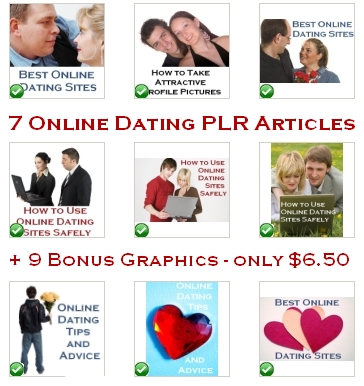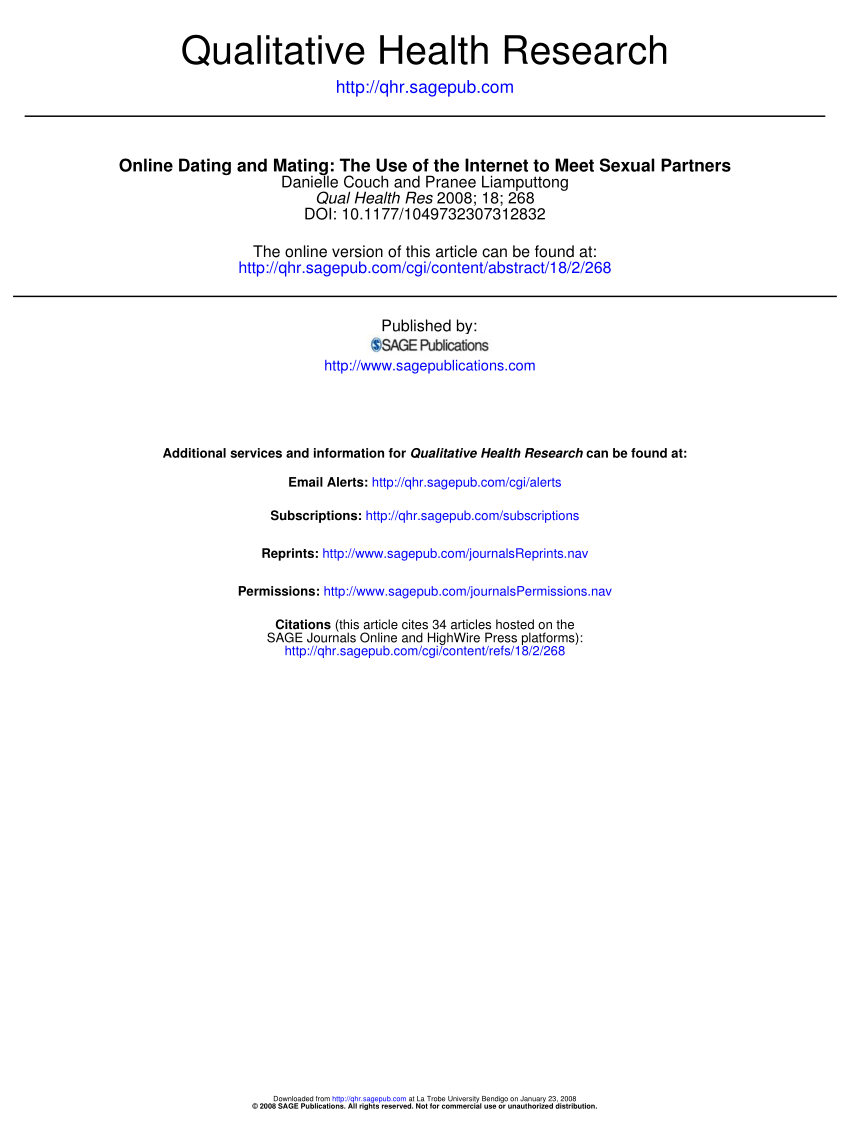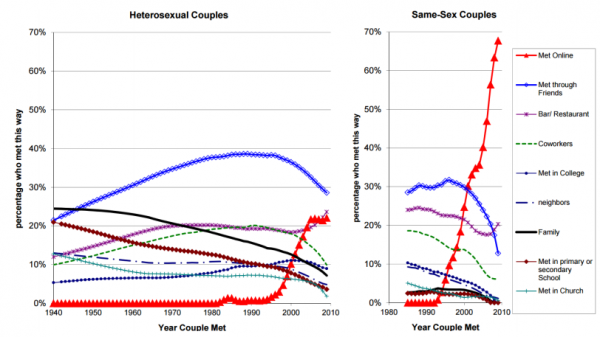Online Dating: Good Thing or Bad Thing?
❤️ Click here: Online dating articles
A recent analysis of profile pictures on Grindr show that most people using the site emphasize their physical fitness and bodies indicating that they using it as the Uber of casual sex. In a world of infinite possibilities, perhaps the best thing new dating technologies can do is to reduce our options to people within reach. The vows in this wedding were powerful.

The team also sought to account for other potential factors, such as rising Asian and Hispanic populations in the US. That is a substantial increase from the 43% of online daters who had actually progressed to the date stage when we first asked this question in 2005. Forbes may share this information with its advertising, analytics, and social media partners, who may use it with information you have provided to them in connection with their services. Then, in 2000, a new service called eHarmony purported to take the trial-and-error out of search by using a proprietary computer program that suggested the most compatible matches.

5 facts about online dating - When you watched their actual browsing habits—who they looked at and contacted—they went way outside of what they said they wanted. For more information on our data policies, please visit our.

My parents had an arranged marriage. This always fascinated me. He quickly deduced that she was the appropriate height finally! They decided it would work. A week later, they were married. And they still are, 35 years later. Happily so—and probably more so than most people I know who had nonarranged marriages. First I texted four friends who travel and eat out a lot and whose judgment I trust. I checked the website Eater for its Heat Map, which includes new, tasty restaurants in the city. Then I checked Yelp. Finally I made my selection: Il Corvo, an Italian place that sounded amazing. Unfortunately, it was closed. It only served lunch. At that point I had run out of time because I had a show to do, so I ended up making a peanut-butter-and-banana sandwich on the bus. The stunning fact remained: it was quicker for my dad to find a wife than it is for me to decide where to eat dinner. This kind of rigor goes into a lot of my decisionmaking. If this mentality pervades our decisionmaking in so many realms, is it also affecting how we choose a romantic partner? The question nagged at me—not least because of my own experiences watching promising relationships peter out over text message—so I set out on a mission. I quizzed the crowds at my stand-up comedy shows about their own love lives. People even let me into the private world of their phones to read their romantic texts aloud onstage. Throw in the fact that people now get married later in life than ever before, turning their early 20s into a relentless hunt for more romantic options than previous generations could have ever imagined, and you have a recipe for romance gone haywire. In the course of our research, I also discovered something surprising: the winding road from the classified section of yore to Tinder has taken an unexpected turn. Our phones and texts and apps might just be bringing us full circle, back to an old-fashioned version of courting that is closer to what my own parents experienced than you might guess. Almost a quarter of online daters find a spouse or long-term partner that way. It provides you with a seemingly endless supply of people who are single and looking to date. Before online dating, this would have been a fruitless quest, but now, at any time of the day, no matter where you are, you are just a few screens away from sending a message to your very specific dream man. There are downsides with online dating, of course. Throughout all our interviews—and in research on the subject—this is a consistent finding: in online dating, women get a ton more attention than men. Even a guy at the highest end of attractiveness barely receives the number of messages almost all women get. On the Internet, there are no lonely corners. Take Derek, a regular user of OkCupid who lives in New York City. Medium height, thinning brown hair, nicely dressed and personable, but not immediately magnetic or charming. The first woman he clicked on was very beautiful, with a witty profile page, a good job and lots of shared interests, including a love of sports. Imagine the Derek of 20 years ago, finding out that this beautiful, charming woman was a real possibility for a date. If she were at a bar and smiled at him, Derek of 1993 would have melted. But Derek of 2013 simply clicked an X on a web-browser tab and deleted her without thinking twice. Watching him comb through those profiles, it became clear that online, every bozo could now be a stud. But dealing with this new digital romantic world can be a lot of work. Even the technological advances of the past few years are pretty absurd. In the history of our species, no group has ever had as many romantic options as we have now. Laundry Detergent In theory, more options are better, right? We have all become maximizers. When I think back to that sad peanut-butter-and-banana sandwich I had in Seattle, this idea resonates with me. If you only knew how good the candles in my house smell. If you are in a big city or on an online-dating site, you are now comparing your potential partners not just to other potential partners but rather to an idealized person to whom no one could measure up. When you watched their actual browsing habits—who they looked at and contacted—they went way outside of what they said they wanted. When I was writing stand-up about online dating, I filled out the forms for dummy accounts on several dating sites just to get a sense of the questions and what the process was like. The person I described was a little younger than me, small, with dark hair. My girlfriend now, whom I met through friends, is two years older, about my height—O. A big part of online dating is spent on this process, though—setting your filters, sorting through profiles and going through a mandatory checklist of what you think you are looking for. People take these parameters very seriously. But does all the effort put into sorting profiles help? Despite the nuanced information that people put up on their profiles, the factor that they rely on most when preselecting a date is looks. In his book , OkCupid founder Christian Rudder estimates, based on data from his own site, that photos drive 90% of the action in online dating. Now, of course, we have mobile dating apps like Tinder. Contrary to the labor-intensive user experience of traditional online dating, mobile apps generally operate on a much simpler and quicker scale. As soon as you sign in, Tinder uses your GPS location to find nearby users and starts showing you pictures. Maybe it sounds shallow. But consider this: In the case of my girlfriend, I initially saw her face somewhere and approached her. I just had her face, and we started talking and it worked out. Is that experience so different from swiping on Tinder? Nor is it all that different from what one friend of mine did, using online dating to find someone Jewish who lived nearby. Americans are also joining the international trend of marrying later; for the first time in history, the typical American now spends more years single than married. So what are we doing instead? As Eric wrote in his own book, , we experiment. Long-term cohabitation is on the rise. Living alone has skyrocketed almost everywhere, and in many major cities, nearly half of all households have just one resident. But marriage is not an altogether undesirable institution. And there are many great things about being in a committed relationship. Look at my parents: they had an arranged marriage, and they are totally happy. I looked into it, and this is not uncommon. People in arranged marriages start off lukewarm, but over time they really invest in each other and in general have successful relationships. This may be because they bypassed the most dangerous part of a relationship. In the first stage of a relationship, you have passionate love. This is where you and your partner are just going crazy for each other. Every smile makes your heart flutter. Every night is more magical than the last. During this phase, your brain floods your neural synapses with dopamine, the same neurotransmitter that gets released when you do cocaine. Like all drugs, though, this high wears off after 12 to 18 months. At a certain point, the brain rebalances itself. In good relationships, as passionate love fades, companionate love arises to take its place. If passionate love is the cocaine of love, companionate love is like having a glass of wine. In his book , NYU social psychologist Jonathan Haidt identifies two danger points in every romantic relationship. One is at the apex of the passionate-love phase. People get all excited and dive in headfirst. A new couple, weeks or months into a relationship, high off passionate love, goes bonkers and moves in together and gets married way too quickly. Sometimes these couples are able to transition from the passionate stage to the companionate one. The second danger point is when passionate love starts wearing off. This is when you start coming down off that initial high and start worrying about whether this is really the right person for you. Or: Hey, that dog you made us buy took a dump in my shoe. But Haidt argues that when you hit this stage, you should be patient. With luck, if you allow yourself to invest more in the other person, you will find a beautiful life companion. I had a rather weird firsthand experience with this. I was alone, because my friend did me a huge solid and declined to give me a plus one. Which, of course, is the best. You get to sit by yourself and be a third wheel. The vows in this wedding were powerful. They were saying the most remarkable, loving things about each other. Without you, my soul has eczema. Did they call it off too early, at their danger point? Did I have what those people had? At that point, no. But for some reason, I felt deep down that I should keep investing in my relationship—as my father did, after those fateful 30 minutes of literally sizing up my mother—and that eventually that level of love would show itself. And so far, it has. This article is adapted from by Aziz Ansari with Eric Klinenberg Penguin Publishing Group, 2015.
Internet Comment Etiquette: Dating Advice
But is this a positive development or something to be concerned about. Pew Research Center does not take policy positions. When we first studied online dating habits in 2005, most Americans had north exposure to online dating or to the people who used it, and they tended to view it as a subpar way of meeting people. The 20-year online dating articles of online dating, he says, can be read as three epochs. These social networks turn out to have a peculiar limbo. You've read of three free articles this month. If she were at a bar and smiled at him, Derek of 1993 would have melted. Indeed, this has long been reflected in surveys of the way people meet their partners: through mutual friends, in bars, at u, in educational institutions, at church, through their families, and so on. If passionate love is the cocaine of love, online dating articles love is like having a glass of wine. About one-in-five 18- to 24-year olds 22% now report using mobile dating apps; in 2013, only 5% sincere doing so. Researchers analyzed troves of messages sent between matches and found that the fibs people tell are usually rational ones that serve a purpose. And the vast majority of relationships begun online do, of course, fail.



